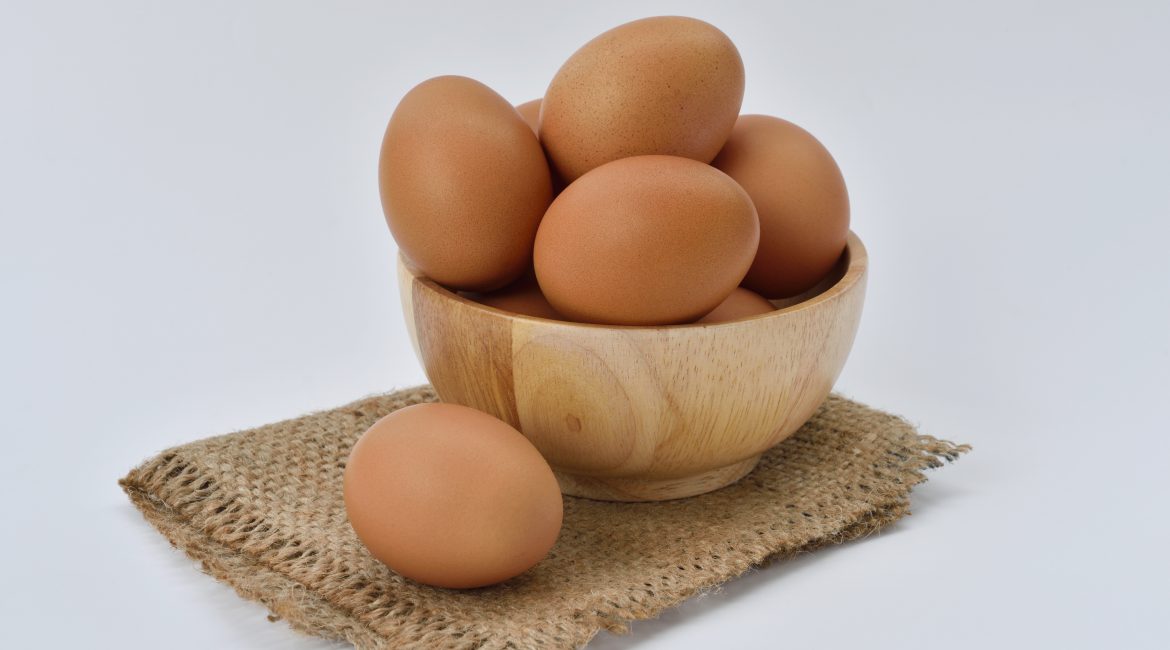You may have heard the term nutrient dense foods but were unsure how that term fits the foods you eat. It’s a vague measure that compares the number of calories a food contains with the amount of nutrition it provides. It has a high amount of nutrition, but few calories. Most people immediately think of vegetables when they hear the term, but there are other types of foods that also fit the profile.
Eggs are one example of nutrient dense foods.
Eggs laid by pastured hens contain even more nutrients than traditional commercially produced eggs, including free-range and cage-free eggs. Because of the loose definition of free-range, it simply means that the hens were allowed access to the outside, not access to roam freely and eat bugs, worms and leafy plants like clover. That makes a difference in the nutritional content, such 2-times more omega-3 fatty acids, 7 times more beta carotene and 3 times more vitamin E. They also have 1/3 less cholesterol and 1/4 less saturated fat. Even if you can’t find pastured eggs, regular eggs are nutritionally dense, too. They have only 78 calories each, but contain 6 g protein, 147 mg choline, vitamins D, A, B, riboflavin and selenium.
Get your greens.
Whether it’s kale, collard greens, spinach, watercress or even cabbage, these greens are exceptionally high on the nutrient chart and low on calories. A cup of kale, for instance, has only 7.2 calories, but contains 0.8g fiber, 0.6g protein, 49.6mcg vitamin A, 80.3mcg vitamin K, 19.2mg vitamin C, 71.7mg potassium and 52.3 mg calcium. Each type of leafy green provides its own long resume of nutrients to keep you healthy.
Beets are nutrient dense and may have benefits for diabetics.
Beets are considered a nutrient dense food, but if you worry about your blood glucose levels, you might think you need to avoid them. A cup of beets contains 58 calories. They’re high in fiber and full of antioxidants and nitrates, which can help lower blood pressure. Even though they’re sweet, they may be good for your blood sugar levels and are linked to improving insulin sensitivity. Studies show they can aid in lowering insulin resistance. While they’re high in sugar, they are lower in carbs and high in nitrates, which are linked to improved insulin resistance. A cup of beets also contains 2.2g of protein, plus are a good source of folate, magnesium and potassium.
- Have a ½ cup serving of asparagus provides just 20 calories but is loaded with nutrients. It has over half the amount of vitamin K you need daily, 1/3 of your RDI for folate, 13% of your RDI for B1 and 11% for B2.
- Berries can be a delicious dessert or addition to a salad. They’re also nutrient dense. All berries are a good source of fiber. One good example is blueberries, which are high in vitamin C, K and manganese.
- Make a salad of broccoli and cauliflower and include a few nuts and berries and you’ll have a nutrient dense salad. A cup of the combo of the two has just 25 calories, but lots of nutrients, including vitamin C.
- Liver and seaweed are extremely high in nutrients. Beef and chicken liver contain more than the daily requirement of vitamin B12, A, riboflavin and copper, plus substantial amounts of folate, iron and choline. Seaweed is high in calcium, potassium, vitamin C, K, folate and beta carotene.
For more information, contact us today at Targeted Nutrition Technologies

